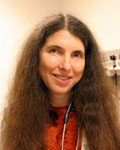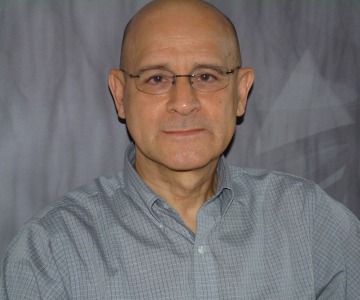EIGHTH DAY
FOURTH COUNCILMANIC YEAR – SESSION OF 1999-2004
J O U R N A L
CITY COUNCIL OF BALTIMORE
March 17, 2003
In Support of Federal Legislation – (HR 676) The United States National Health Insurance Act (“Expanded and Improved Medicare For All”)
FOR the purpose of expressing support for Representative John Conyers, Jr.’s legislation that seeks to ensure that all Americans, guaranteed by law, will have access to the highest quality, cost effective, health care regardless of an individual’s employment, income, or health care status; and urging the Maryland State Delegation to the 108 th Congress to secure final passage of the legislation.
Recitals
The United States National Insurance Act establishes a national health insurance program by creating a single payer health care system. The bill creates a publicly financed, privately delivered health care program that expands and improves upon the existing Medicare program and makes it available to all residents of the United States and the U.S. territories. Persons enrolled in the program would not be subject to co-pays or deductibles.
The legislation addresses the needs of the over 42 million uninsured and over 40 million under-insured Americans who do not benefit from the current inefficient, costly, and fragmented health care delivery system. It is expected that the United States National Health Insurance Act will reduce overall annual health care spending by $109 billion – the average cost to an employer for an employee earning $35,000 per year will be reduced to less than $100 a month and a family who pays $5-7,000 a year in health insurance will pay less than $50 a month. Total household expenditures would drop from $326.7 billion to $65.9 billion annually.
National Health Insurance will cover all medically necessary services, including primary care, in-patient care, out-patient care, emergency room care, prescription drugs, durable medical equipment, long term care, mental health services, dentistry, eye care, chiropractic, and substance abuse treatment. Patients will have their choice of physicians, health care providers, hospitals, clinics, and group practices.
To ensure conversion to a non-profit health care system, private health insurers will be prohibited from selling coverage that duplicates the benefits of the National Health Insurance program. They will not, however, be prohibited from selling coverage for any additional benefits not covered by the Act such as cosmetic surgery and other elective and medically unnecessary surgery and treatments.
The National Health Insurance Act will set annual reimbursement rates and provide an annual lump sum allotment to each existing Medicare region that will then administer the program. Payments to health care providers will include fee for service and global budgets. The conversion to this not-for-profit health care system is expected to take place over a 15 year period and will be financed through the sale of U.S. Treasury bonds.
The United States Congress will establish annual funding appropriations for basic operating costs of the program that will operate under the auspices of the Department of Health and Human Services and be administered by the former Medicare offices. All current expenditures for public health insurance programs will be enveloped by the National Health Insurance program. Other funding for the program will come from modest payroll taxes on employers and employees and a higher health income tax on the wealthiest 5% of Americans.
There is no reason for anyone in this country to go without the basic health care coverage that sustains life when the industry has evolved to the point that vanity-driven, elective, medical procedures have become the lunchtime indulgence of middle-class America.
NOW, THEREFORE, BE IT RESOLVED BY THE CITY COUNCIL OF BALTIMORE, That this Body supports Representative John Conyers, Jr.’s legislation that seeks to ensure that all Americans, guaranteed by law, will have access to the highest quality, cost effective, health care regardless of an individual’s employment, income, or health care status; and urges the Maryland State Delegation to the 108 th United States Congress to secure final passage of HR 676.
AND BE IT FURTHER RESOLVED, That a copy of this Resolution be sent to the Mayor, the members of the Maryland State Delegation to the 108 th United States Congress, the members of the Baltimore City Delegation to the 2003 Maryland General Assembly, the Baltimore City Health Commissioner, and the Mayor’s Legislative Liaison to the City Council.
Councilmember Holton made a motion, which was duly seconded, that the Rules be suspended.
The roll was called on the motion, resulting as follows:
Yeas – President and Councilmembers Cain, Garey, Branch, Carter, Young, Curran, Harris,
Mitchell, Pugh, Welch, Holton, Rawlings Blake, Spector, Abayomi, Reisinger, Stukes – Total 17.
Nays – Councilmember Stancil – Total 1.
Out of Chambers – Councilmember D’Adamo – Total 1.
The President declared the Rules “Suspended”.
Then Councilmember Holton made a motion, which was duly seconded, that the Resolution
be adopted.
The roll was called on the motion, resulting as follows:
Yeas – President and Councilmembers Cain, Garey, Branch, Carter, Young, Curran, Harris,
Mitchell, Pugh, Welch, Holton, Rawlings Blake, Spector, Abayomi, Reisinger, Stukes – Total 17.
Nays – Councilmember Stancil – Total 1.
Out of Chambers – Copuncilmember D’Adamo – Total 1.
The President declared the Resolution “Adopted”.
Link to PDF of resolution.

